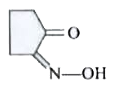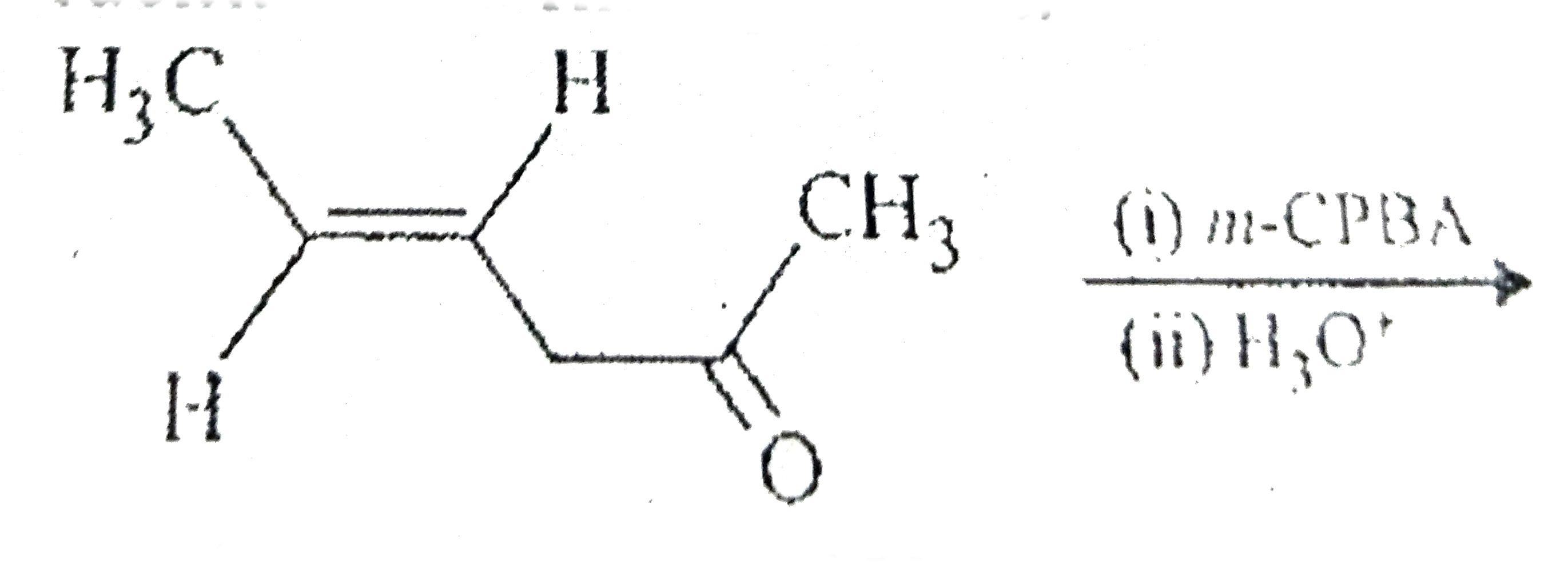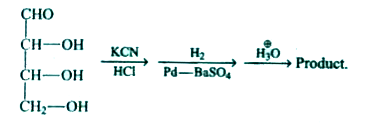On electrolysis of fused the final product is-
The correct Answer is:A
To solve the question regarding the electrolysis of fused NaCl and to identify the final product, we can follow these steps:
1. Understanding Electrolysis: Electrolysis is a process that uses electrical energy to drive a non-spontaneous chemical reaction. In the case of fused NaCl, we are looking at the breakdown of sodium chloride into its constituent ions.
2. Dissociation of NaCl: When NaCl is melted (fused), it dissociates into sodium ions (Na⁺) and chloride ions (Cl⁻):
NaCl (s)→Na+(l)+Cl−(l)
3. Identifying the Electrodes: In electrolysis, there are two electrodes: the cathode (negative electrode) and the anode (positive electrode).
- At the cathode, reduction occurs (gain of electrons).
- At the anode, oxidation occurs (loss of electrons).
4. Reactions at the Electrodes:
- At the Cathode: Sodium ions (Na⁺) gain electrons to become sodium metal (Na):
Na++e−→Na(s)
- At the Anode: Chloride ions (Cl⁻) lose electrons to form chlorine gas (Cl₂):
2Cl−→Cl2(g)+2e−
5. Final Products: The products of the electrolysis of fused NaCl are sodium metal (Na) at the cathode and chlorine gas (Cl₂) at the anode. However, since the question asks for the final product, we focus on the solid sodium metal produced at the cathode.
6. Conclusion: Therefore, the final product of the electrolysis of fused NaCl is sodium (Na).
Final Answer:
The final product of the electrolysis of fused NaCl is sodium (Na).
NaCl (s)→Na+(l)+Cl−(l)
- At the cathode, reduction occurs (gain of electrons).
- At the anode, oxidation occurs (loss of electrons).
- At the Cathode: Sodium ions (Na⁺) gain electrons to become sodium metal (Na):
Na++e−→Na(s)
- At the Anode: Chloride ions (Cl⁻) lose electrons to form chlorine gas (Cl₂):
2Cl−→Cl2(g)+2e−
The final product of the electrolysis of fused NaCl is sodium (Na).
Topper's Solved these Questions
- S-BLOCK ELEMENTS BOOK - ALLENCHAPTER - S-BLOCK ELEMENTS EXERCISE - EXERCISE -1 (B)
1 Videos
- S-BLOCK ELEMENTS BOOK - ALLENCHAPTER - S-BLOCK ELEMENTS EXERCISE - EXERCISE -2
1 Videos
- S-BLOCK ELEMENTS BOOK - ALLENCHAPTER - S-BLOCK ELEMENTS EXERCISE - EXERCISE -3
1 Videos
- s-Block element BOOK - ALLENCHAPTER - s-Block element EXERCISE - All Questions
14 Videos
- SOLUTIONSBOOK - ALLENCHAPTER - SOLUTIONSEXERCISE - EXERCISE -05 [B]
22 Videos
Similar Questions
Knowledge Check
 Final product Y is:A
Final product Y is:A B
B C
C D
D
Assertion: In electrolysis of aqueous NaCl the product obtained is not H2 gas.
Reason: Generally gases are liberated faster than the metals.AAssertion and Reason both are correct statements and reason is the correct explanation of the assertion.BAssertion and Reason both are correct statements, but reason is not the correct explanation of the assertion.CAssertion is true, but reason is false.DAssertion is false, but reason is true.Assertion:In electrolysis of aqueous NaCl the product obtained is H2 gas.
Reason:Gases are liberted faster than the metals.AIf both assertion and reason are true and reason is the correct explanation of assertion .BIf both assertion and reason are true but reason is not the correct explanation of assertion .CIf assertion is true but reason is false .DIf both assertion and reason are false .





 Find out the final product 'B':
Find out the final product 'B':